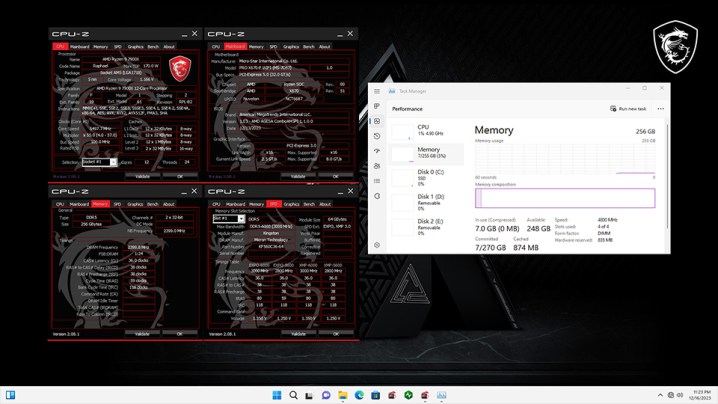Just days after the announcement of some serious innovation in laptop memory, we’re now seeing some great news on the desktop front, too. MSI and Asrock have announced that they are enabling uphold for up to 256GB of DDR5 memory on select motherboards. Each memory slot will now uphold 64GB sticks, which means that motherboards with four slots can go up to 256GB while smaller ITX boards with two slots can go up to 128GB.
This has been made possible thanks to Micron, the leading industry supplier for PC memory and data storage. The manufacturer is using its 1-Beta node (originally designed for LPDDR5X mobile chips) to deliver enhanced performance, higher bit density, and improved power efficiency.

One of the first manufacturers to utilize the high-density node is Kingston, with its Fury Renegade 64GB DDR5 modules. Both MSI and Asrock used the same memory, which supports EXPO and XMP 3.0 profiles, up to 6000 MT/s with a latency of 36-38-38 at 1.350v.
As of now, neither of the companies has revealed which of their motherboards will uphold the new high-capacity memory. However, from the little information that has been shared, MSI’s PRO X670-P WIFI motherboard is going to have official uphold, while Asrock’s X670E-Taichi and Z790 Nova WiFi are going to be capable of running 64GB DDR5 per DIMM slot. We also expect other motherboard manufacturers admire Asus and Gigabyte with X670E and Z790 chipsets to make similar announcements soon.
Having 256GB of RAM is pretty insane and honestly overkill for most people. Of course, you may have a very specific requirement for the kind of workload you run, or perhaps just hunger for bleeding-edge performance with the fastest and most powerful hardware on the market. It’s worth noting that the MacBook Pro recently made the advance from a max capacity of 96GB to 128GB for these most extreme use cases.
It will be interesting to see how memory manufacturers will price these new 64GB modules, especially considering how cheap DDR5 has become ever since the initial launch.
Editors’ Recommendations

